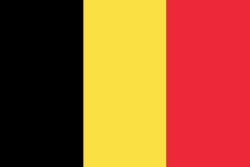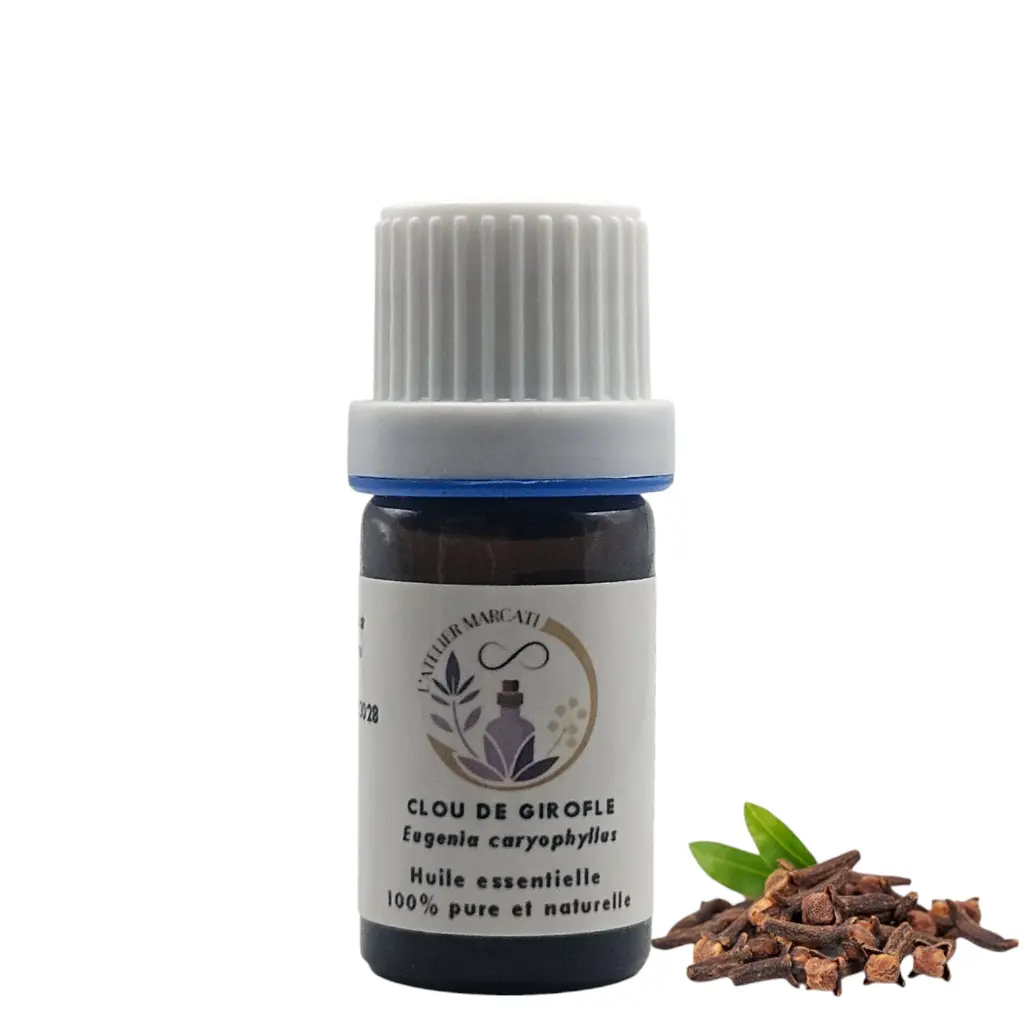Clove or Clove essential oil
Botanical name: Eugenia caryophyllus

Chemotype and indications
Identity card
Name : Clove
Botanical name: Eugenia caryophyllus
Distilled part: Flower bud
Botanical family: Myrtaceae
Origin: Madagascar
Chemical composition: (Fresh nails):
- Esters (+/- 22%): Eugenyl Acetate (22%)
- Oxides
- Phenols: Eugenol (70 to 80%)
- Sesquiterpenes (5.5 to 6%): Alpha and Beta Caryophyllene, Alpha and Beta Humulene, Alpha Muurolene
Physical properties and therapeutic indications
- Tonsillitis*
- Analgesic*
- Dental anesthetic*, Dental infections*
- Toothache painkiller*
- Toothache neuralgia*
- Toothache (to destroy the nerve of the tooth)*
- Antiseptic*
- Broad spectrum bactericide*
- Virucide*
- Barbouille*
- Cholera*
- Bacterial enterocolitis*
- Spasmodic*, viral*
- Extreme fatigue*, general stimulant°
- Fungicide*
- Viral hepatitis*
- Urogenital Infections*
- Metritis*
- Malaria*
- Cutaneous parasitosis (scabies)*
- Tuberculosis*
- Uterotonic (prepares for childbirth)*
- Prevents infections following childbirth
Emotional, psychological properties and therapeutic indications
- Hypersensitivity
- Stimulant (nervous and psychological)
- Intellectual asthenia
- Promotes concentration, memory (lack)
Additional information
Danger: Very dermocaustic, Use for 7 days maximum, Oral route: Minimal use, reserved for adolescents and adults), Always dilute this EO very widely
Legend: * powerful, ** very powerful; *** extremely powerful (power value for the associated pathology)
Reference and bibliographic source: Lily BAYER and Dr Hervé STAUB, (2013) "In-depth Treatise on Phyto and Aromatherapy", Ed. Grancher. p.532.
THE INDICATIONS IN AROMATHERAPY AND THE USE OF ESSENTIAL OILS DO NOT CONSTITUTE A MEDICAL DIAGNOSIS AND DO NOT REPLACE THE ADVICE OF A DOCTOR OR MEDICAL TREATMENTS!



